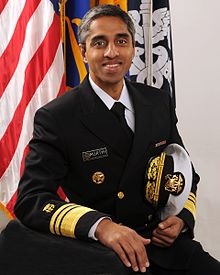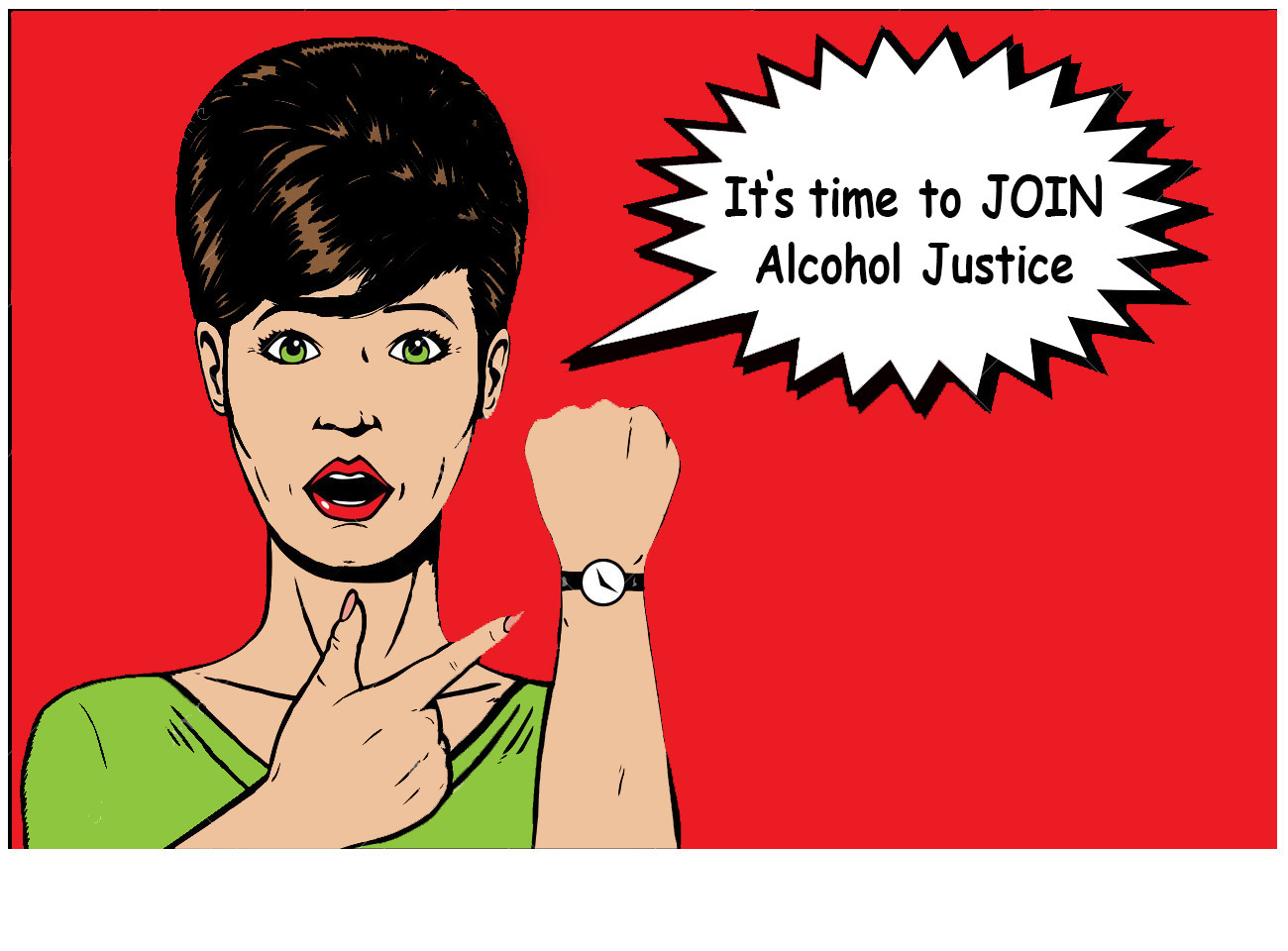Blog
Raise the Beer Tax: A Healthy Plan for an Ailing Budget
 Sometimes there are easy answers to hard problems. California faces a $1.6 billion budget shortfall, in large part due to miscounted healthcare costs. According to Alcohol Justice, a $0.25 per beer tax would cover that and more. Nothing could be simpler. As Alcohol Justice Executive Director/CEO Bruce Lee Livingston said, “A beer tax increase is common sense, fiscally responsible, and long overdue.”
Sometimes there are easy answers to hard problems. California faces a $1.6 billion budget shortfall, in large part due to miscounted healthcare costs. According to Alcohol Justice, a $0.25 per beer tax would cover that and more. Nothing could be simpler. As Alcohol Justice Executive Director/CEO Bruce Lee Livingston said, “A beer tax increase is common sense, fiscally responsible, and long overdue.”
California’s beer tax hasn’t been raised in a quarter of a century, and is in the bottom half nationally. (Its liquor and wine taxes rank even lower.) The state is hardly alone in this; very few states have raised that rate in the past decade, and only Louisiana has done so within the past year. Proposed hikes in New Mexico and Kansas face industry opposition, despite the steady depreciation of current taxes as compared to inflation.
Alcohol product excise taxes play two roles. First, they generally raise revenue. Alcohol Justice maintains a tax calculator that estimates the total financial benefit to states for raising their excise taxes. A simple $0.25 tax per drink of beer would bring in over $1.7 billion dollars to California’s general fund.
Second, excise taxes can direct funds straight to programs that address the harms of alcohol. This model, called Charge for Harm, essentially places the responsibility on alcohol sellers for offsetting the damage their products cause. The end result, though, is still a savings to the state government; California picks up the tab for an estimated $13.7 billion in alcohol-related costs annually, including outlays for healthcare and criminal justice.
California is overdue to increase its alcohol taxes. Governor Brown may have missed his chance this year, but the need will grow. “Each year alcohol taxes are not raised translates into a government subsidy of Big Alcohol,” said Michael Scippa, Alcohol Justice’s public affairs director. “It's time for our state leaders to add a beer tax increase to any budget-balancing plan.”
READ MORE about Charge for Harm.
Sober Heads Prevail: Minimum-Unit Pricing Upheld in Scotland
 Scotland is getting closer to knocking out the bottom shelf. In late October, Scottish courts rejected a challenge to minimum unit pricing, a statute that sets a "floor" for alcohol sales. This floor is determined by the ABV, eliminating the market for the high-alcohol, low-price beverages that enable harmful drinking patterns.
Scotland is getting closer to knocking out the bottom shelf. In late October, Scottish courts rejected a challenge to minimum unit pricing, a statute that sets a "floor" for alcohol sales. This floor is determined by the ABV, eliminating the market for the high-alcohol, low-price beverages that enable harmful drinking patterns.
The appeal was brought by the Scotch Whisky Association, a trade group representing the £5 billion Scotch industry but largely funded by liquor giant Diageo. Diageo alone represents 24 Scotch whisky distilleries, but that is far from the extent of their holdings. Although Scotch is generally considered not subject to minimum unit pricing, Diageo's international brands include many low-price products in the developing world, and some critics suspect Diageo fears the Scottish Parliament's public health plan will set a precedent for similar statutes worldwide.
Diageo's opposition reads doubly ironic as they are also the backers of Stop Out of Control Drinking, a Scottish anti-alcohol campaign. Despite its mission, the campaign has refused to support minimum-unit pricing.
Prior to the victory in Scottish court, the statute withstood challenge in the coruts of the European Union. The ongoing litigation has been decried by members of the Scottish Parliament as a "stalling tactic." "This policy was passed by the Scottish Parliament unopposed more than four years ago," said Aileen Campbell, Scotland's Minister for Public Health. "In that time, the democratic will of our national parliament has been thwarted by this ongoing legal challenge, while many people in Scotland have continued to die from the effects of alcohol misuse."
The Scotch Whisky Association along with two other trade groups announced they will be appealing the ruling to the UK Supreme Court.
READ MORE about minimum unit pricing in Scotland.
Surgeon General: "Never Too Early, Never Too Late to Prevent Substance Misuse"
 Youth Especially Can Learn to Benefit From Alcohol-Free Life, According to DHHS Report on Addiction
Youth Especially Can Learn to Benefit From Alcohol-Free Life, According to DHHS Report on Addiction
In November 2016, the U.S. Department of Health and Human Services set the tone for the next generation of policies towards alcohol and addictive drugs with Facing Addiction In America: The Surgeon General’s Report on Alcohol, Drugs and Health. The report aims to confront the harm caused by illicit drug use, prescription drug misuse, and disordered drinking. In doing so, Surgeon General Vivek H. Murthy advocates an approach that emphasizes prevention, treatment, and integration of addiction services into standard healthcare. Just as importantly, Dr. Murthy pushes back against the dead-end of individual blame, bringing hope for pragmatic solutions to the estimated 20.8 million Americans in need of treatment for substance misuse—including the 15.7 million experiencing harm from alcohol use. (US Surgeon General's Addiction Website)
"It may surprise many people to recognize that alcohol leads to the other substances," said Dr. Murthy in an interview with PBS Newshour.
Central to the treatment strategy is the neurobiological model of addiction. In this model, addictive behaviors can be explained by a combination of dysfunctional reward systems in the brain and insufficient opportunities to build healthier ones. This quasi-disease model treats recovery as a retraining process, and likewise clears the way to prevention efforts.
If an individual experiencing that disease can retrain their reward circuits, quality prevention education and training can reinforce addiction resistance before the disease gets hold. At the same time, the report acknowledges that addiction emerges from a combination of drug exposure, quality of life, and genetic susceptibility; a sensible effort to combat addiction must identify and/or address all three.
In particular, Dr. Murthy singles out the age that someone first uses alcohol or other drugs as a risk factor for later misuse, emphasizing that “preventing or even just delaying young people from trying substances is important for reducing the likelihood of more serious problems later on.” The report encourages common-sense alcohol access regulations such as alcohol prices, restrictions on points of sale, and minimum purchasing ages, and urges they be extended to other legal recreational substances such as marijuana.
 Yet the report insists, “It is never too early and never too late to prevent substance misuse.” Aside from engaging youth, the report pushes all medical professionals to screen for alcohol and substance misuse. That includes primary care doctors, as well as psychiatrists and emergency personnel. These screens create opportunities to engage in non-emergency behavioral treatments, improving patients’ abilities to control problem use before it creates lasting harm. “With any other health condition like heart disease,” Dr. Murthy writes, “detecting problems and offering treatment only after a crisis is not considered good medicine.”
Yet the report insists, “It is never too early and never too late to prevent substance misuse.” Aside from engaging youth, the report pushes all medical professionals to screen for alcohol and substance misuse. That includes primary care doctors, as well as psychiatrists and emergency personnel. These screens create opportunities to engage in non-emergency behavioral treatments, improving patients’ abilities to control problem use before it creates lasting harm. “With any other health condition like heart disease,” Dr. Murthy writes, “detecting problems and offering treatment only after a crisis is not considered good medicine.”
Yet even when acute interventions are needed, “only 1 in 10 people with substance abuse disorders are getting treatment," Dr Murthy said to reporters. "That is unacceptable, and we have to close the gap."
For those who experience serious problems, the report recommends fully integrating substance abuse services with the existing medical and health insurance framework. Moreover, recovery can be a long process, and individuals need access not to just to acute detox but long-term “recovery support systems.” The systems include AA and other supportive groups, but also case management, sober living environments, and similar supportive spaces for people looking to reinforce an alcohol- and drug-free lifestyle.
"We're encouraged to see alcohol addiction given equal weight to other drugs of abuse," said Alcohol Justice Executive Director/CEO Bruce Lee Livingston, "and to see it implicated in worsening other addictions. We also strongly agree with the idea that prevention is the best solution—now government agencies at all levels must make good on the Surgeon General's words."
Although many of Dr. Murthy's recommendations seem common-sense to those familiar with evidence-based prevention and recovery, Dr. Murthy cautions that “this change will require a major cultural shift in the way we think about, talk about, look at, and act toward people with substance use disorders.” Yet the report is optimistic, citing the lifting of stigmas attached to HIV. AIDS, after all, was once regarded as a mysterious and terrifying plague. Now, it is just a disease to be treated.
Join Alcohol Justice -- Fight Big Alcohol
In 2017 Alcohol Justice will be celebrating 30 years of fighting Big Alcohol and reducing alcohol-related harm. For the first time ever, our Board of Directors and I invite you to become a member and join these efforts. It's our first membership drive.

I've got two teenage boys, and I'm fighting Big Alcohol to protect them and all youth from the annual US catastrophe of over 88,000 alcohol-related deaths, and $250 billion in alcohol-related harm. Everybody knows somebody whose life had been interrupted or ended by an alcohol-related cause. We fight for the victims and the survivors and most of all for prevention, but we need your participation to protect our families and communities.
 This past year we successfully fought against powdered alcohol in many states. It's not easy restricting alcohol availability or raising alcohol taxes when you're fighting goliath global alcohol corporations like Anheuser-Busch InBev and Diageo. But we try, and sometimes we win, and when we do public health and safety wins too.
This past year we successfully fought against powdered alcohol in many states. It's not easy restricting alcohol availability or raising alcohol taxes when you're fighting goliath global alcohol corporations like Anheuser-Busch InBev and Diageo. But we try, and sometimes we win, and when we do public health and safety wins too.Join Alcohol Justice now to hold Big Alcohol accountable and reduce alcohol-related harm, especially among youth. Join now as we enter our 30th year. Become a member, and when you do, we promise to involve you in battles that can help save the lives of those you love.
JOIN NOW!
From my family to yours, Happy Holidays!
Bruce Lee Livingston
Executive Director/CEO

More Articles ...
Help us hold Big Alcohol accountable for the harm its products cause.
| GET ACTION ALERTS AND eNEWS |
STAY CONNECTED    |
CONTACT US 24 Belvedere St. San Rafael, CA 94901 415-456-5692 |
SUPPORT US Terms of Service & Privacy Policy |


